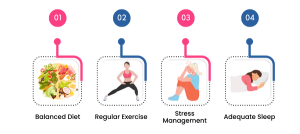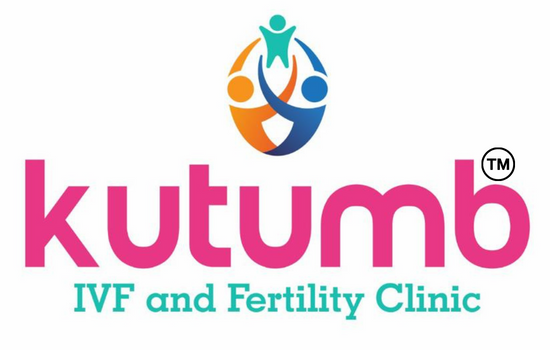What is AMH?
Anti-Müllerian Hormone (AMH) is a hormone produced by the granulosa cells of developing follicles in the ovaries. It plays a critical role in the development of ovarian follicles, which are the structures that house eggs. AMH levels provide valuable insights into a woman’s ovarian reserve, indicating the quantity of eggs available for potential ovulation. Unlike other hormones, AMH levels remain relatively stable throughout the menstrual cycle, making it a reliable marker for assessing fertility.
Understanding AMH and Its Role in Fertility
AMH is an essential biomarker for evaluating ovarian reserve. It serves as a key indicator of a woman’s reproductive potential. Here’s how AMH influences fertility:
• Ovarian Reserve Assessment: AMH levels help determine the number of viable eggs a woman has left. Higher AMH levels generally suggest a greater ovarian reserve, while lower levels may indicate a reduced number of eggs. Women with low AMH levels may face challenges in conceiving naturally, as they may have fewer eggs to ovulate.
• Fertility Treatment Guidance: For couples facing infertility, AMH testing can guide treatment decisions. In cases of low AMH, fertility specialists may recommend specific interventions, such as in vitro fertilization (IVF) or the use of donor eggs. However, it’s essential to understand that low AMH does not mean pregnancy is impossible; many women with low AMH levels conceive naturally or with minimal assistance.
• Understanding Age and AMH: AMH levels typically decline with age, which can lead to a decrease in fertility. Women in their late 30s and early 40s often experience lower AMH levels. Monitoring AMH can help women plan their families and make informed decisions about when to conceive.
• Lifestyle Factors: While low AMH levels can be concerning, lifestyle factors such as diet, exercise, and stress management can positively impact overall fertility. A healthy lifestyle can improve hormonal balance and potentially enhance the chances of natural conception, even with low AMH levels.
Natural Conception With Low AMH Levels
Low Anti-Müllerian Hormone (AMH) levels can be a significant concern for women trying to conceive naturally, as AMH is a crucial indicator of ovarian reserve. However, by understanding the factors that influence AMH levels and implementing effective strategies, women can enhance their chances of achieving natural conception. For those seeking additional support, consulting an IVF Center in Visakhapatnam can provide valuable insights and options tailored to their unique fertility needs.
Factors Affecting AMH Levels
Several factors can influence AMH levels, which in turn affect fertility:

• Age: AMH levels naturally decline with age, especially after the age of 30. This decline reflects the reduction in the number of available eggs, impacting overall fertility.
• Genetics: Genetic predispositions can significantly affect AMH levels. A family history of fertility issues may indicate lower AMH levels in individuals.
• Hormonal Imbalances: Conditions such as polycystic ovary syndrome (PCOS) can result in elevated AMH levels, while other hormonal imbalances may lead to decreased production of AMH.
• Body Weight: Both underweight and overweight conditions can disrupt hormone production, including AMH. Maintaining a healthy weight can help stabilize hormone levels and improve fertility.
• Lifestyle Factors: Smoking, excessive alcohol consumption, and a poor diet can negatively impact AMH levels. Additionally, exposure to environmental toxins and endocrine disruptors may also play a role.
• Health Conditions: Various health issues, such as endometriosis, autoimmune disorders, or previous ovarian surgeries, can affect ovarian reserve and AMH production.
Natural Conception Strategies for Low AMH
Here are five natural conception strategies for individuals with low AMH levels:
1. Balanced Diet: Focus on a diet rich in fruits, vegetables, whole grains, and healthy fats (like omega-3s) to support hormonal balance and reproductive health.
2. Regular Exercise: Engage in moderate physical activity to maintain a healthy weight and improve overall circulation, which can enhance fertility.
3. Stress Management: Incorporate relaxation techniques such as meditation, yoga, or deep breathing exercises to reduce stress, as it can negatively impact fertility.
4. Adequate Sleep: Prioritize getting 7-9 hours of quality sleep each night to support hormonal balance and overall health.
5. Consult a Specialist: Seek advice from a fertility specialist for personalized strategies and treatment options tailored to your specific needs.
Natural Conception with Low AMH Levels: Key Strategies
Low AMH (Anti-Müllerian Hormone) levels can raise concerns about fertility, but various lifestyle modifications and complementary therapies can enhance your chances of natural conception. Here are two crucial areas to focus on:
Lifestyle Modifications to Support Fertility

• Balanced Diet: Consume a variety of fruits, vegetables, whole grains, and healthy fats. Antioxidant-rich foods can help combat oxidative stress, while omega-3 fatty acids support hormone production.
• Regular Exercise: Aim for at least 30 minutes of moderate exercise most days. Activities like walking, yoga, and strength training can improve circulation and reduce stress.
• Stress Management: Practice mindfulness, meditation, and yoga to lower stress levels. These practices can positively impact hormonal balance and emotional well-being.
• Adequate Sleep: Strive for 7-9 hours of quality sleep each night. Establish a bedtime routine and create a restful sleep environment.
Complementary Therapies for Low AMH
• Acupuncture: This therapy may help regulate menstrual cycles, improve blood flow to the ovaries, and reduce stress, enhancing overall fertility.
• Herbal Remedies: Consult a healthcare provider about beneficial herbs like maca root for hormone balance and vitex (chaste tree berry) to support ovulation.
• Nutritional Supplements: Consider supplements like folic acid, CoQ10, and vitamin D to support reproductive health.
• Mind-Body Practices: Engage in guided imagery or support groups to foster a positive mindset and emotional resilience.
Conclusion
Natural conception can be a challenging journey for those with low AMH levels, but it is not impossible. By understanding the factors affecting fertility and implementing lifestyle changes, women can optimize their chances of conception. Collaborating with a qualified infertility specialist in Vizag can provide personalized guidance and support, ensuring that all aspects of reproductive health are addressed. Additionally, exploring available options for fertility treatment in Visakhapatnam can further enhance the likelihood of achieving a successful pregnancy. Remember, every individual’s journey is unique, and with the right approach, hope remains for a fulfilling path to parenthood.
